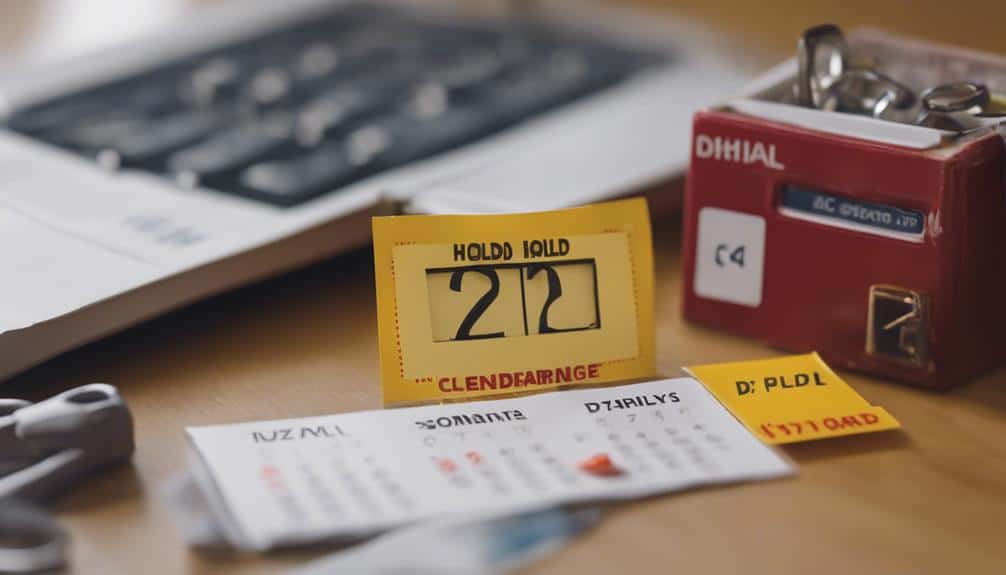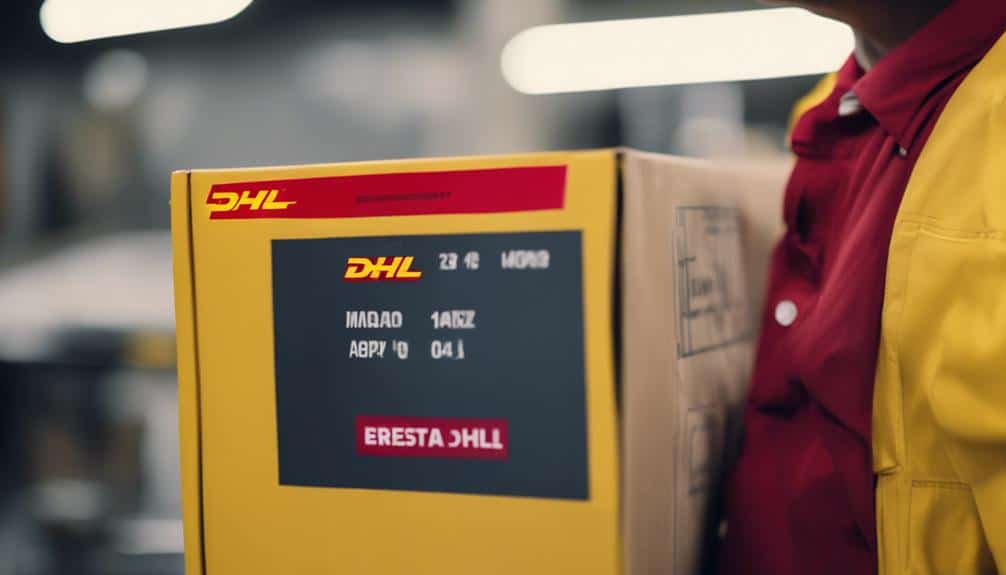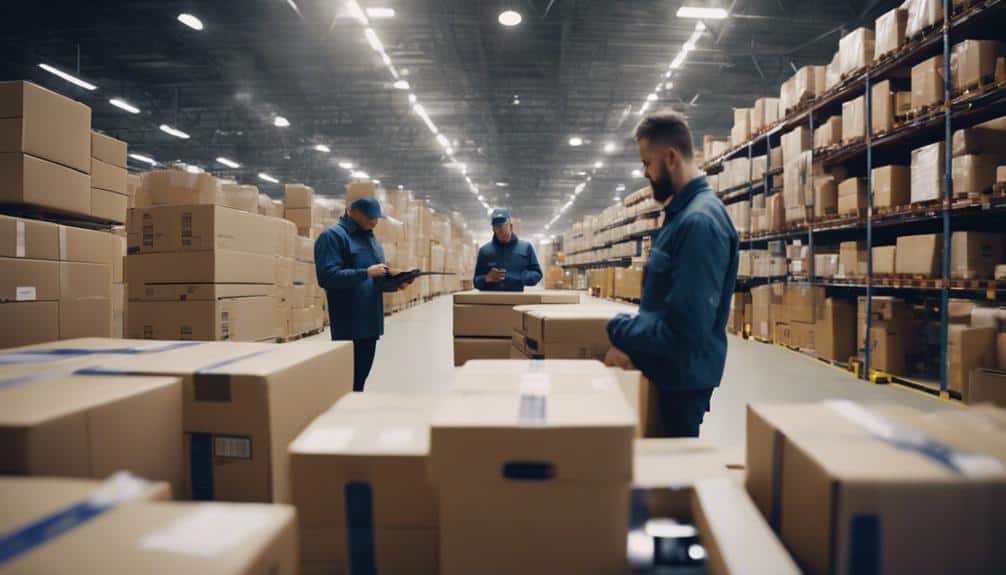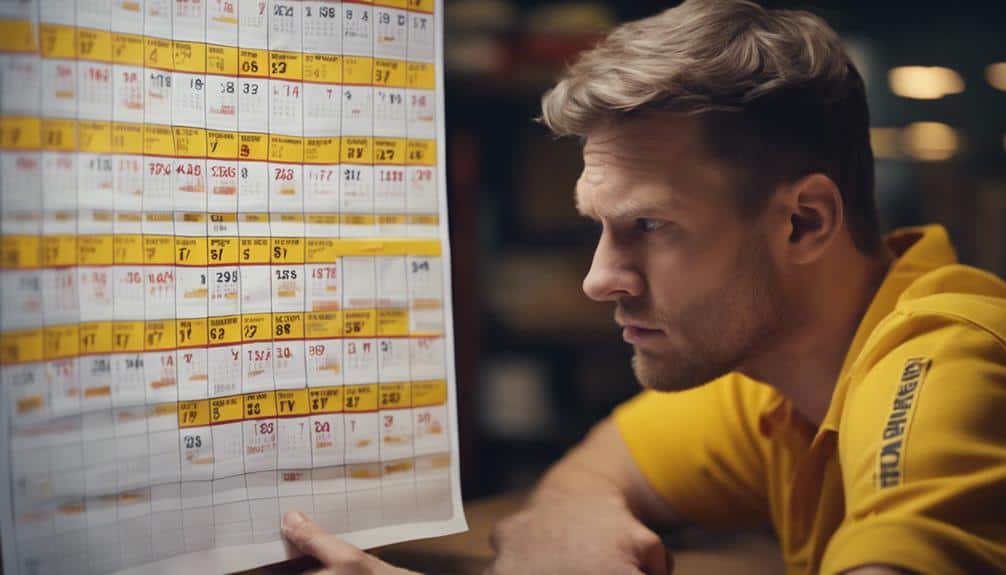If you've experienced DHL shipment delays, understanding the causes and necessary steps is vital. Being placed on hold indicates a temporary pause due to logistical challenges, customs delays, paperwork issues, or natural disasters. Reach out to DHL customer service for updates and consider altering the delivery address or opting for in-person pickup. Patience is key, but prolonged holds may require further investigation. Staying proactive, checking paperwork accuracy, and monitoring shipment tracking are essential. Setting realistic delivery expectations and prioritizing communication will help navigate any delays effectively. More insights on managing delays and preventing issues are available in the detailed research provided.
Key Takeaways
- Customs delays are common and can cause shipment holds.
- Verify paperwork accuracy to prevent significant delays.
- Expect port congestion during peak shipping seasons.
- Monitor tracking for updates on delivery expectations.
Understanding Shipment On Hold

Understanding a shipment that's on hold provides insight into temporary delays that may occur during the shipping process.
When tracking your shipment, an 'On Hold' status may appear, indicating a brief pause in movement. During this time, your package is secure and typically not in any immediate danger.
It's essential to remember that an 'On Hold' status doesn't necessarily signal a problem with your shipment; it often stems from logistical challenges that are swiftly resolved.
While waiting for the hold to lift, you can consider alternative delivery options like changing the delivery address or picking up the package in person if available at a nearby DHL location.
Stay informed by monitoring your shipment tracking for updates on when you can expect your delivery.
Common Causes for Shipment Holds
Frequently encountered reasons for shipment holds include customs delays, paperwork issues, port congestion, natural disasters, and temporary facility closures.
When shipments get held up, it's often due to customs inspections taking longer than expected or paperwork inaccuracies causing delays.
Port congestion can also play a significant role in holding back your package, especially during peak shipping seasons.
Additionally, unforeseen events like natural disasters or temporary closures of facilities can disrupt the smooth flow of shipments, leading to unexpected holds.
Keeping these common causes in mind can help you better understand why your shipment might be on hold and what steps you can take to address the issue promptly.
Steps for On Hold Shipments

For managing shipments that are on hold, it's essential to follow specific steps to guarantee timely resolution.
First, contact DHL customer service for updates on the status of your shipment. Utilize the provided tracking number for precise information.
Next, double-check all paperwork to confirm accuracy and completeness, as incorrect documentation may lead to further delays.
Be patient during this process, as some delays are beyond immediate control.
Consider changing the delivery address to avoid congestion, or opt to pick up the package in person from the nearest DHL location if feasible.
Signs of Concern for Holds
What're the key indicators that suggest a shipment on hold may require immediate attention?
If you notice the following signs, it's essential to address the hold promptly to maintain customer satisfaction and shipping transparency:
- Extended Hold Duration: Holds lasting beyond the usual timeframe could signal underlying issues impacting delivery schedules.
- Lack of Updates: A lack of communication or updates from DHL regarding the hold may raise concerns about the shipment's status.
Preventative Measures for Shipments

Taking proactive steps can help minimize the risk of shipment holds and delays.
To prevent issues, make sure your packing materials are sturdy and appropriate for the contents. Fragile items should be well cushioned, and liquids securely sealed to prevent leaks.
Adhere strictly to shipping timelines, allowing for ample buffer to handle unforeseen delays. Double-check all paperwork for accuracy, including commercial invoices and packing lists.
Consider using priority services for faster customs clearance during peak shipping seasons. Research potential port congestion and opt for quality shipping materials that can withstand transit challenges.
Key Takeaways on Shipment Holds
To navigate potential shipment holds effectively, prioritize understanding the key takeaways outlined for managing delays and ensuring smooth delivery processes.
When dealing with shipment holds, remember the following essential points:
- Regularly Monitor Shipment Tracking: Stay informed about your package's status to anticipate any potential delays.
- Set Realistic Delivery Expectations: Recognize that unforeseen circumstances may cause temporary holds, requiring patience for resolution.
Contacting DHL Customer Service

When facing concerns or seeking updates on your shipment status, consider reaching out to DHL Customer Service for prompt assistance and clarification.
DHL's customer support team is equipped to provide detailed information regarding your shipment and offer insights into any delays you may be experiencing.
By contacting customer service, you can receive real-time updates on the current status of your package and potential timelines for resolution.
Their service response aims to address your inquiries efficiently and effectively, ensuring that you're kept informed throughout the process.
Don't hesitate to utilize this resource to gain clarity on any issues affecting your shipment and to get the support needed to navigate through any delays or concerns.
Conclusion
So, next time you find your DHL shipment on hold, don't panic!
Just like a traffic jam on the highway, delays happen, but with the right information and proactive steps, you can smoothly navigate through them.
Remember to check your paperwork, stay informed about potential issues, and reach out to DHL customer service for assistance.
By taking these steps, you'll be back on the road to a successful delivery in no time.

Oliver Postman was born and raised in a small town in the Midwest, where his fascination with postage began at an early age. At just six years old, he stumbled upon a box of old stamps in his grandfather’s attic, igniting a passion that would shape his life.

